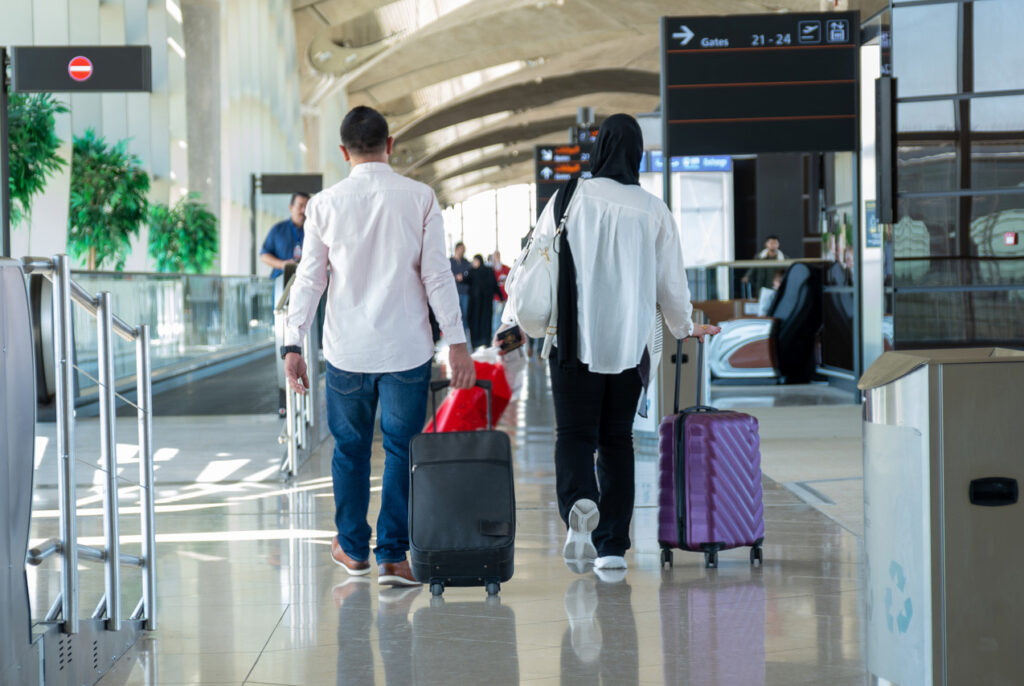

As a refugee who fled Iraq in 1982 because of war and persecution, I love the United States. My adopted country gave me a new start, freedom I never had enjoyed before and a bright future for my family.
But as a Christian, I’m saddened by the hateful rhetoric that often greets newcomers today. So little of it is true. And it shows an utter disregard for the biblical imperative to welcome the strangers in our midst.
My fellow conservatives have branded immigrants illegally crossing our southern border as murderers, rapists and drug dealers. Former President Donald Trump repeatedly has said illegal immigrants are “poisoning the blood of our country” and recently sparked hostility toward Haitian immigrants – most of them in this country legally – in Springfield, Ohio.
Secure borders
Let me be perfectly clear: America should be able to protect its borders, limiting immigration to those who enter legally. That’s because preserving the blessings of liberty means taking security measures before allowing people into the country.
Today, even though I’m a citizen of this great country, I’m singled out when it comes to travel. I often go through extra screening, I’m asked extra questions, and I receive much more scrutiny than white Americans any time I re-enter the United States.
Why? Because there are people who look like me, talk like me and have names similar to mine who want to harm this nation. So, I welcome any additional screening, because it means our government is doing its job of keeping our people safe.
Truth about immigrants
Yet, research debunks the myths about a widespread “invasion” of criminals and terrorists.
A recent study of census data from 1870 to 2020 showed immigrants are less likely to be jailed for committing crimes than people born in the United States. In fact, overall crime rates have fallen while immigration has increased.
The New York Times put the trend in perspective: “There are more than 45 million immigrants in the U.S., and invariably some of them – just like people of any other group – will do bad things. Similarly, thousands of native-born Americans commit violent crimes in any given week.”
But stories of violent crimes committed by illegal immigrants receive extra attention. So do stories of illegal immigrants smuggling drugs across the southern border, even though 89 percent of the people convicted for drug trafficking in fentanyl in 2022 were U.S. citizens.
Stories like these proliferate because they prey on our most basic fears, like the tendency to suspect refugees from the Muslim world are terrorists.
“And yet statistics show that refugees are the least likely section of a population to get involved in violence – they are refugees because they fled violence and persecution,” the UN Refugee Agency reports.
In fact, the vast majority of newcomers to this country are merely trying to survive. They dream of living productive lives, but it’s hard to be accepted in a strange land. The food is different, the laws are unfamiliar, jobs are tough to find, and English is difficult to learn.
The Bible on immigrants
The Bible couldn’t be clearer about how Christians should respond.
In Leviticus 19:34, God tells the people of Israel: “You shall treat the stranger who sojourns with you as the native among you, and you shall love him as yourself, for you were strangers in the land of Egypt.”
Instead of looking at newcomers as a threat, Christians should look at them as their neighbors.
If you’re afraid of terrorism and crime, they’re your neighbors. Whether you plan to vote Republican or Democratic, they’re your neighbors. If you’ve never in your life spoken to someone from another country, they’re your neighbors.
And what does the Bible say you’re to do to your neighbors? Love them and tell them about Jesus.
This article first appeared at the Baptist Standard.
Dr. Jalil Dawood, who fled to America from Iraq as a refugee and persecuted Christian, has been a U.S. citizen since 1988. He is the founder of World Refugee Care, pastor of the Arabic Church of Dallas and author of The Refugee: A Story of God’s Grace and Hope on One Man’s Road to Refuge. The views expressed in this opinion article are those of the author.














